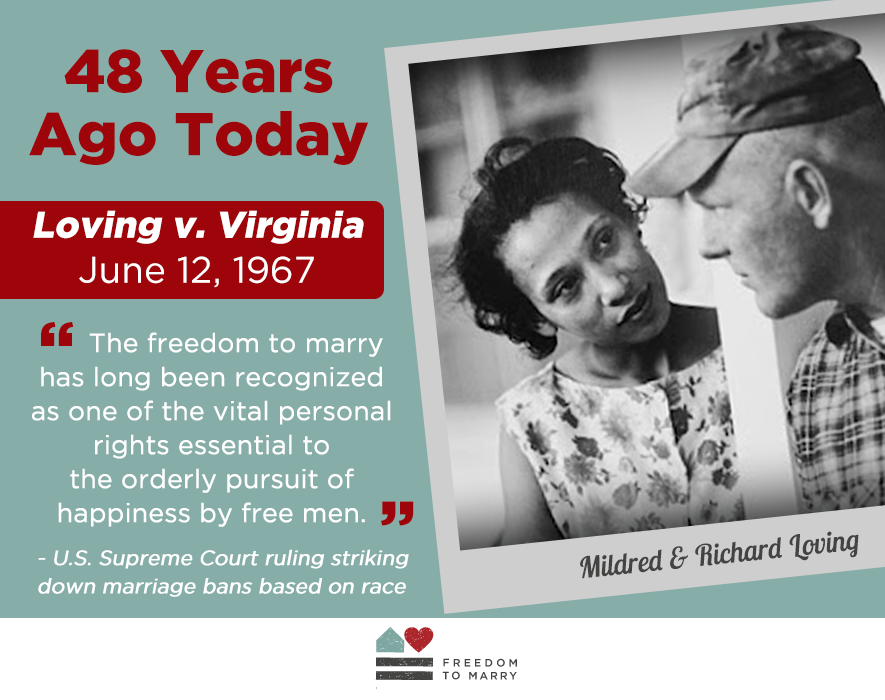Looking back on the 48th anniversary of ‘Loving v. Virginia’ SCOTUS decision
June 12, 2015
 Today, June 12, marks the 48th anniversary of the United States Supreme Court's decision on Love v. Virginia, a landmark ruling that declared bans on interracial marriage in the United States unconstitutional. The Supreme Court ruled unanimously that all Americans, no matter their race, should be able to get married to whomever they loved.
Today, June 12, marks the 48th anniversary of the United States Supreme Court's decision on Love v. Virginia, a landmark ruling that declared bans on interracial marriage in the United States unconstitutional. The Supreme Court ruled unanimously that all Americans, no matter their race, should be able to get married to whomever they loved.
The case, on which the Supreme Court ruled in 1967, has been a touchtone for supporters of the freedom to marry for same-sex couples. Last year, the freedom to marry for same-sex couples came to more states than the freedom to marry for interracial couples before the Loving v. Virginia decision -- indicating that Americans know, now more than ever, that all loving, committed couples should be able to have the rights and responsibilities of marriage.
The plaintiffs in Loving v. Virginia were a black woman, Mildred Loving, and a white man, Richard Loving, who wanted to be married in their home state of Virginia. But laws in that state prohibited interracial marriage -- until the United States Supreme Court found that practice unequivocally unconstitutional.
In more than 14 cases throughout history, including Loving v. Virginia, the United States Supreme Court has declared marriage a fundamental right. In the Loving decision, the Court wrote, "The freedom to marry has long been recognized as one of the vital personal rights essential to the orderly pursuit of happiness by free men." Read more about the other 13 cases here.
As we await the Supreme Court's decision on the freedom to marry for same-sex couples, we urge them to remember this case from 48 years ago, that cemented the truth that love is love, and that marriage should be denied to no one.